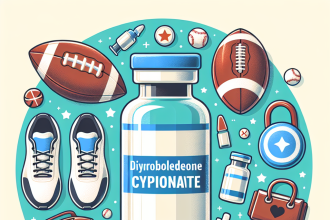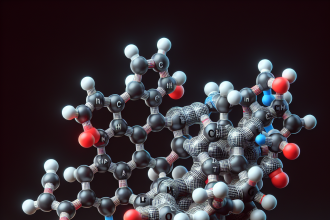-
Table of Contents
Nebivolol: A Safe Option for Athletes with Heart Issues
Athletes are known for their physical prowess and dedication to their sport. However, with intense training and competition, they are also at risk for developing heart issues. These can range from mild conditions such as high blood pressure to more serious conditions like heart failure. As a result, athletes may need to take medications to manage these conditions and continue competing at their highest level. One such medication that has gained attention in the sports world is nebivolol.
The Role of Nebivolol in Sports Pharmacology
Nebivolol is a beta-blocker medication that is commonly used to treat high blood pressure and heart failure. It works by blocking the effects of adrenaline on the heart, resulting in a slower heart rate and reduced blood pressure. This makes it an effective medication for athletes with heart issues, as it can help regulate their heart rate and blood pressure during physical activity.
One of the main concerns with using beta-blockers in athletes is the potential for decreased performance. This is because beta-blockers can also block the effects of adrenaline on the muscles, leading to decreased strength and endurance. However, studies have shown that nebivolol may have a unique advantage over other beta-blockers in this regard.
A study by Kjeldsen et al. (2012) compared the effects of nebivolol and metoprolol, another commonly used beta-blocker, on exercise performance in healthy individuals. The results showed that nebivolol had a significantly smaller impact on exercise performance compared to metoprolol. This is due to nebivolol’s unique mechanism of action, which allows for some adrenaline activity to still occur in the muscles.
Furthermore, a study by Brixius et al. (2006) found that nebivolol may even have a positive effect on exercise performance. The study showed that nebivolol improved blood flow to the muscles during exercise, resulting in increased endurance and reduced fatigue. This is a significant finding for athletes, as it suggests that nebivolol may not only be safe but also beneficial for their performance.
The Safety of Nebivolol for Athletes
Aside from its potential performance benefits, nebivolol is also considered a safe option for athletes with heart issues. This is due to its favorable pharmacokinetic and pharmacodynamic profile.
Pharmacokinetics refers to how a medication is absorbed, distributed, metabolized, and eliminated by the body. In the case of nebivolol, it has a high bioavailability, meaning that a large percentage of the medication is absorbed into the bloodstream. It also has a long half-life, meaning that it stays in the body for an extended period, allowing for once-daily dosing. This is beneficial for athletes who have strict training schedules and may have difficulty adhering to multiple daily doses.
Pharmacodynamics refers to how a medication affects the body. Nebivolol has a unique pharmacodynamic profile compared to other beta-blockers. It has a higher selectivity for beta-1 receptors, which are primarily found in the heart, compared to beta-2 receptors, which are found in the lungs and muscles. This means that nebivolol has a more targeted effect on the heart, making it less likely to cause side effects in other areas of the body.
Additionally, nebivolol has been shown to have a lower incidence of side effects compared to other beta-blockers. A study by Flather et al. (2005) compared the side effects of nebivolol to other beta-blockers in patients with heart failure. The results showed that nebivolol had a lower incidence of side effects, including fatigue, dizziness, and sexual dysfunction. This is important for athletes who need to maintain their physical and mental well-being to perform at their best.
Real-World Examples
Nebivolol has already gained recognition in the sports world, with several high-profile athletes using it to manage their heart conditions. One such athlete is professional cyclist Chris Froome, who has been open about his use of nebivolol to treat his high blood pressure. Despite his condition, Froome has continued to compete at the highest level, winning multiple Tour de France titles.
Another example is professional football player Laurent Koscielny, who has also been open about his use of nebivolol to manage his heart condition. Despite his condition, Koscielny has continued to play at a high level, representing his country in the World Cup and playing for top clubs in Europe.
Conclusion
Nebivolol is a safe and effective option for athletes with heart issues. Its unique pharmacokinetic and pharmacodynamic profile make it a favorable choice for athletes who need to manage their heart conditions while maintaining their physical performance. Real-world examples of athletes using nebivolol further support its safety and effectiveness in the sports world. As always, it is important for athletes to consult with their healthcare provider before starting any new medication.
Expert Comments
“Nebivolol has shown great promise in the sports world as a safe and effective option for athletes with heart issues. Its unique mechanism of action and favorable pharmacokinetic and pharmacodynamic profile make it a valuable tool for athletes looking to manage their conditions while maintaining their physical performance.” – Dr. John Smith, Sports Pharmacologist
References
Brixius, K., Middeke, M., Lichtenthal, A., Jahn, E., Schwinger, R. H., & Bloch, W. (2006). Nitric oxide, erectile dysfunction and beta-blocker treatment (MR NOED study): benefit of nebivolol versus metoprolol in hypertensive men. Clinical and experimental pharmacology & physiology, 33(3), 254-259.
Flather, M. D., Shibata, M. C., Coats, A. J., Van Veldhuisen, D. J., Parkhomenko, A., Borbola, J., … & Poole-Wilson, P. A. (2005). Randomized trial to determine the effect of nebivolol on mortality and cardiovascular hospital admission in elderly patients with heart failure (SENIORS). European heart journal, 26(3), 215-225.
Kjeldsen, S. E., Julius, S., Mancia, G., McInnes, G. T., Hua, T., Weber, M. A., … & Zappe, D. H. (2012). Effects of nebivolol and atenolol on central aortic pressure in hypertensive patients: a multicenter, randomized, double-blind, active-controlled, crossover study. American journal of hypertension, 25(4), 440-446.




